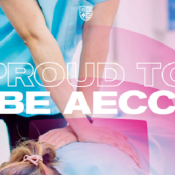
Nursing courses in the UK
Are you considering studying nursing abroad? Why not check out the options in the UK? The nursing degree covers areas within anatomy, physiology, microbiology, drug calculation, disease theory, psychology, ethics, health policy and legislation. This is an education if you who like working with people, enjoy daily challenges and work well in a team.
The Nursing education is very varied and contains both theory and practice. The education is about learning to provide good and caring care to people who are exposed to illness, suffering or injury, as well as to people who are in the last phase of life. As a nurse, you have many varied job opportunities, such as in somatic hospitals, nursing homes, in psychiatry, child welfare services, etc.
When you are going to study nursing in the UK, you can already at the undergraduate level choose to immerse yourself as a special type of nurse. It can be useful to think about what you most want to work with before you decide which direction you want to go, as it can be difficult to go from one direction to another once you have finished your education. There will be more opportunities to choose specialisations later in your degree in terms of which field you want to pursue. If you want to know more about the directions within Nursing, ask your student advisor in Across the Pond.
THE NURSING DEGREE
The first year of the nursing degree consists of basic theory, while the second and third years are designed for the students to learn theory at the university and have practical learning through rotation services at nursing homes near the university. Elective modules make it possible to study areas of the subject that interest you the most.
Throughout the course, you can take advantage of varied learning methods such as rota service, exchange and internships/placements. The study is a mixture of theoretical and practical work, which gives you a broad basic knowledge that is necessary for success in professional life. The universities also have good cooperation agreements with universities in other countries, where you can go on exchange for up to one year.
MASTER'S DEGREE IN ONE YEAR
After completing an undergraduate degree, you have a broad background and you qualify for a number of master's degrees. In the UK you can apply for almost any master's degree without necessarily having an undergraduate in the same field of study. Of course, a relevant bachelor's degree would be advantageous, but it is not always a requirement. After completing an undergraduate degree, you will also be able to go on to a master's degrees in for instance Business, Management, Marketing etc. Across the Pond advisors are happy to send you suggestions for courses that will suit you. If you have a relevant background in nursing or healthcare, you can continue with degrees in fields such as health/nutrition, psychology, midwifery, medicine, biomedicine, radiography, genetics, chiropractic, physiotherapy, occupational therapy and much more. In the UK, a master's degrees usually takes one year.
JOB OPPORTUNITIES
You have many options for specialisation and further education as a qualified nurse, for example cancer nursing, anesthesia nursing, psychiatric nursing, intensive care nursing, neuronursing, surgical nursing or pediatric nursing. Nursing and midwifery education are also further education for nurses.
When you are going to work as a nurse, you must also be prepared for the fact that many of the job opportunities available are rota positions. This means that if you want to work as a nurse at e.g. a hospital, then you should be prepared that this is not necessarily an 9-5 job. There are also job opportunities for those who do not want these positions, but there are fewer of these, e.g. work at a health clinic or similar.








